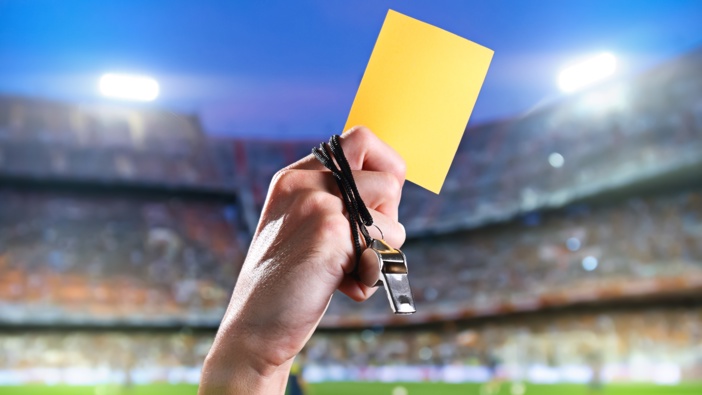Follow
the podcast on


The All Whites were playing Poland yesterday in the build up for next year’s World Cup. I saw about half of the game. Although we ultimately lost, my main takeaway was that we looked alright. All Whites of old would have faced potential humiliation in a game against Poland – not this team.
But for whatever reason I was also struck by one of the challenges that led to a yellow card in the match, and the way in which the players reacted.
To be clear, it was nothing special. A heavy, clumsy challenge, but one which happens in every top tier football game and probably every Sunday league golden oldies 40+ social game too. The tackle came in. The ref blew his whistle. And in a moment, players from both teams immediately crowded him out.
I don’t get it. I don’t understand why football, of all sports, lets players rush the referee, getting right up in their face to theatrically plead innocence or insist that an opponent should be more harshly sentenced. Sure, the rules state that players can be penalised for dissent, but it happens so rarely. Instead, you see them rush the ref all the time in top level games. Sometimes half a team will run in. It can take minutes to restore order.
I get that sport is emotional, but it’s a curious exercise to compare what football will generally allow players to do to referees with other, more violent sports. In rugby, there’s no way referees would stand for it. There’s a very clear process. If you’ve got a problem, your captain is welcome to bring it to the ref, but if any other players push the line, they risk being penalised. Most players get it pretty quickly.
In American football, if you give much more than a ‘yes sir’ to one of the officials, you’ll be penalised for unsportsmanlike conduct or ejected from the game.
They have trialled similar things in football. They looked at a blue card option in which referees could sin-bin players for dissent. They looked at rules where only captains could approach referees. But so far it hasn’t been adopted in the top leagues with the most money, the most viewers, and the most influence.
Apparently one of the concerns is that cracking down on player treatment of referees will suppress some of the emotion in the game, and emotion makes it fun to watch.
But I dunno. I reckon by being so loosey-goosey and allowing ten or a dozen players to all get up in the ref’s face at once, they’ve ended up incentivising histrionic behaviour. Now, if a player makes a heavy tackle and knows they’re probably in the wrong, they have to go up and scream and yell and stamp their feet at their supposed cruel treatment, because they know the other team will be making just as much of a scene, trying to get them punished. It’s like an arms race – you have to match your opponent’s outrage.
Football is a near-perfect team sport. It’s beautifully simple. The barriers to entry are basically non-existent. The scope for creativity and flare is vast.
But if there is one way the beautiful game might be improved just a bit, it’s the way players treat the referee.
Take your Radio, Podcasts and Music with you









